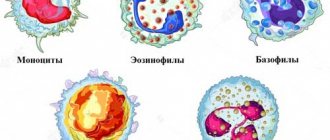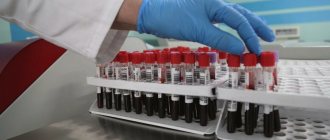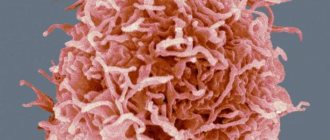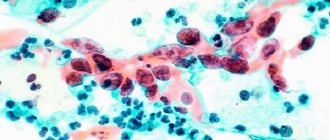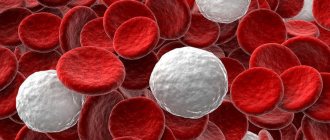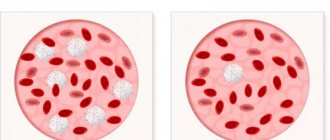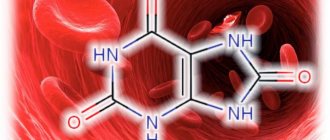Before prescribing treatment for any disease, the required examination must be carried out. The selection of therapeutic therapy depends on the correct diagnosis. But taking any drugs or substances can negatively affect the test results. It is also worth considering that you should not drink alcohol before tests, because strong drinks can greatly change the results . And to make sure of this, it is worth considering the features of the influence of alcohol on the examinations being carried out.
The effect of alcohol on blood tests
When diagnosing various diseases, blood tests are often performed. It is used to determine the causes of pathology, its form, degree of complexity and many other indicators. To ensure accurate results, it is worth excluding conditions that could change them, including drinking drinks that contain alcohol.
Take note! It is necessary to conduct thorough preparation before taking the tests. It is recommended to stop drinking alcohol and taking various medications 1-2 days before the diagnosis
How does alcohol affect blood tests:
- It causes destruction of the membrane of red blood cells and reduces their mobility properties. When consumed, the quality of blood viscosity increases, the number of red blood cells decreases, and hemoglobin decreases;
- The synthesis of glucose in the liver slows down. Drinking drinks with alcohol before tests can cause an erroneous diagnosis in a healthy person, namely diabetes;
- Increases lactic acid. As a result, incorrect diagnoses may be made that may be related to the heart and blood vessels;
- Increases urea levels;
- Increases cholesterol ;
- Increases the content of neutral fats. As a result of this, the specialist may assume that the patient has problems with blood vessels, cardiac activity, and liver;
- Causes changes in the content of micro- and macroelements. This makes it difficult to determine which substances are required;
- Leads to changes in hormonal levels .
Drinks with alcohol greatly distort blood test results. Erroneous readings can cause the doctor to make an erroneous diagnosis . And this may be a consequence of the selection of incorrect treatment therapy, which as a result can negatively affect health.
Features of the influence of alcoholic beverages on test results
You should not drink alcohol before taking tests. Products containing alcohol can greatly change the results , but they are still not the only ones that should be avoided before conducting diagnostics. Nicotine, failure to follow a healthy diet, as well as various drugs cause distortion of indicators.
How does it affect the overall analysis?
When asked whether alcohol can be consumed before blood tests, experts will answer in the negative. Under the influence of alcohol components, research data may be distorted:
- Red blood cells are destroyed;
- Cholesterol levels increase (sometimes it can reach up to 80%);
- Hemoglobin decreases.
The main danger of consuming drinks containing alcohol right before the diagnosis is that they have a strong effect on the concentration of red blood cells. It destroys them, but they are of great importance for health. They transport oxygen from the respiratory system to various organs and tissues, and transport carbon dioxide back to the respiratory organs.
When exposed to ethyl alcohol, destruction of the erythrocyte membrane is observed. This causes disruption of their movements , they stop repelling and stick to each other. As a result, the level of red cells decreases, and this leads to the fact that hemoglobin is greatly reduced. At the same time, microthrombi form and microcirculation deteriorates.
Under the influence of alcoholic drinks, the blood structure becomes viscous. As a result, clots appear that cannot pass through the capillary and vascular walls. And this phenomenon can be dangerous to human life . It interferes with a full blood test.
Impact on the results of biochemical studies
especially affects biochemical blood tests; it distorts the results obtained. This study is complete. Using it, you can discover which components are not enough for the body, and which, on the contrary, are present in excess quantities.
Under the influence of drinks with alcohol, changes in the biochemical blood test are observed:
- Decreased glucose levels;
- Decline in urea levels;
- Cells cannot absorb oxygen at full capacity;
- Deterioration of a person's well-being.
Drinking alcoholic beverages can lead to a sharp decrease in glucose levels. This can be especially dangerous during diabetes.
When drinking alcohol, uric acid levels in the blood decrease, and this can negatively affect health. The doctor may make the wrong diagnosis . Reduced urea levels may indicate that there are severe circulatory problems. Urea is required to remove nitrogen from the body, and if this element is elevated, this may indicate the presence of gout and chronic arthritis.
Alcohol often leads to an increase in triacylglycerols in the blood. These fats are characteristic of pathologies such as atherosclerosis, coronary heart disease, cerebral vascular thrombosis, and viral hepatitis.
Important! Many specialists try not to use alcohol-containing drugs when conducting tests. However, they are believed to be able to detect various infections . But still, ethyl alcohol can greatly change the results, so that even a professional cannot figure them out.
You should not carry out tests after drinking alcohol; it is better to wait 2-3 days. If a patient undergoes a biochemical study while hungover, he may experience the following conditions:
- Fainting;
- The occurrence of prolonged headaches;
- Signs of nausea;
- Vomit.
Usually, when performing a biochemical blood test, a small amount of blood is taken. A sober person will not notice any significant changes. However, alcohol molecules disrupt metabolic processes and negatively affect cerebral circulation.
Impact on the results of blood sampling for sugar
Blood tests for sugar readings are usually prescribed for patients who have metabolic disorders. During the study, a finger prick is performed. If alcoholic beverages were consumed before the analysis, the composition of the blood becomes thick, this creates some difficulties when collecting it, and also increases the risk of blood clots .
Ethyl alcohol has a detrimental effect on the liver. It also negatively affects reagents and the operation of laboratory instruments. For this reason, two different results can occur - increased or decreased blood glucose levels.
1 gram of ethyl alcohol causes an increase in kilocalories to almost 7 units. The fact is that the molecules of alcoholic beverages instantly interfere with metabolic processes. And under the influence of liver enzymes, glucose is formed. As a result, blood sugar levels increase
Drinks containing alcohol can temporarily lower blood glucose levels. It is kept within normal limits for 2.5 hours a day; this is provided by carbohydrates that enter the digestive organs. During the rest of the period, the liver produces glucose; it resorts to reserves in the body. However, alcohol can disrupt this process , which can lead to a drop in glucose.
7 more important recommendations
Improving health indicators, improving health, and improving the quality of blood must be approached responsibly, comprehensively and thoroughly. It is impossible to become healthy just by drinking a glass of beer with sour cream a day. This measure is in addition to a comprehensive approach that includes:
- a healthy, balanced diet containing the full range of substances required by the body, including those for improving blood composition and the absorption of nutrients from food;
- healthy, full, sound sleep;
- consumption of sufficient amounts of clean water;
- lack of stress, calm attitude towards external stimuli;
- presence of physical activity, preferably in the fresh air;
- living in an area with a favorable environmental situation;
- giving up bad habits: smoking, overeating, eating junk food, drinking too much alcohol, etc.
The effect of alcohol on urine analysis
You should not drink alcohol before taking a urine test, because the drink can change the test results. If drinks with alcohol have already been consumed, then you should not carry out diagnostics the next day; it is better to wait 2-5 days so that ethyl alcohol is completely removed from the body.
Under the influence of alcohol, the following changes in analyzes may be observed:
- There is an increase in urea levels;
- Increased lactic acid;
- Increase in glucose levels;
- If alcoholic beverages contained coloring components, preservatives, or elements to enhance taste, then traces of these substances will be detected in the urine for at least 2-3 days.
To speed up the elimination of alcohol, it is not recommended to drink drugs with a diuretic effect. They will overload the kidneys . Along with harmful components, beneficial substances and a large amount of potassium will be excreted.
How long before you stop drinking alcohol?
You can drink alcohol in minimal doses on the eve of donating blood, provided that the alcohol has time to completely leave the body before the test.
If we are talking about donation, then in order for the preliminary analysis to be clear and the person to be allowed to participate in the procedure, you should not drink alcohol for at least 4-5 days (or preferably a week) before donating blood. You can only donate blood if you are absolutely sober; doing so while hungover is irresponsible, since such material can cause serious complications for the person to whom it will be transfused.
When can you drink alcoholic beverages?
Alcohol can greatly change the data of any tests - blood, urine and even spermogram. Therefore, it is not recommended to drink it before the examination. It is especially important to stop drinking alcohol before performing a test during major operations.
If the illness is not very serious, then small amounts of alcohol are allowed. But the doctor must inform each patient about this individually .
Before 2-3 days of diagnosis, you must stop consuming drinks containing alcohol. During this period, the body experiences a attenuation of processes that can greatly affect the state of the body.
It is not recommended to take alcohol before tests; in any case, ethyl alcohol will have a negative effect on the results. And this can ultimately lead to an erroneous diagnosis . It is better not to take alcohol-containing drinks and medications a few days before the diagnosis. The only situation where alcohol does not change the indicators is an alcohol intoxication test, which is indicated for drivers and some workers.
Red wine and white blood cells
Leukocytes protect the body from all infections, so it is important for every person that their number is normal. When the volume of leukocytes in the blood is low, the first thing that experts recommend is a properly selected balanced diet. You need to include pomegranate and beet juice in your diet.
Many doctors advise including dry red wine in your diet; it improves the functioning of red blood cells, normalizes blood pressure and normalizes white blood cell and platelet counts. Wine makes the organs that are responsible for the production of leukocytes and good blood counts work more intensively.
Even patients after chemotherapy are prescribed by doctors to take 50 ml of wine to maintain immunity. Take the drink in the morning and evening after meals. Cahors wine can be taken before bed by adding 1 tablespoon to tea.
INTERESTING fact: Is it possible to drink alcohol if you have type 2 diabetes?
It must be taken into account that, like all drugs, wine has contraindications:
- individual intolerance;
- children;
- feeding;
- pregnancy;
- liver pathology.
In all other cases, you can safely use folk recipes, because wine does not reduce leukocytes in the blood.
A low level of leukocytes is a fairly serious pathology that leads to weakening of the body, so you need to be vigilant in choosing a treatment method and the treatment process itself. The use of alcohol for elevated leukocytes is also acceptable as a folk remedy, but a competent approach is required.
Be healthy!
